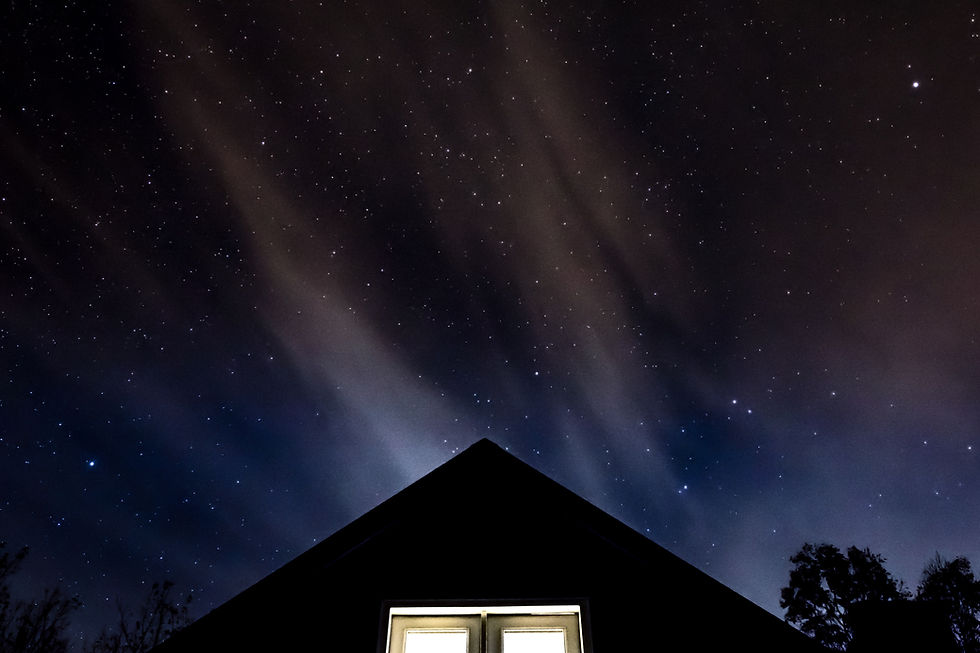Health and Hygiene in the Wilderness: Staying Clean and Healthy
- Summer

- Aug 8, 2023
- 3 min read
Embrace Nature Without Compromising Health
Venturing into the wilderness offers a unique and rejuvenating experience that connects us to the natural world. However, amid the breathtaking landscapes and invigorating outdoor activities, it's essential to prioritize health and hygiene. Proper hygiene not only ensures your comfort but also safeguards you against potential health risks that can arise in the wilderness. In this guide, we'll delve into effective strategies to stay clean and healthy while immersing yourself in the great outdoors.

1. Pack Wisely: Essential Hygiene Items
Before you hit the trail, make sure your backpack is stocked with a well-considered selection of hygiene essentials. Some must-haves include:
Biodegradable Soap: Opt for a biodegradable soap to minimize your impact on the environment while still keeping clean. Use it for washing your body, dishes, and even clothes.
Toothbrush and Toothpaste: Maintaining oral hygiene is crucial, even in the wild. A foldable toothbrush and a small tube of toothpaste won't take up much space.
Hand Sanitizer: For situations where water isn't readily available, a small bottle of hand sanitizer can help keep your hands clean and free from germs.
Microfiber Towel: These compact and quick-drying towels are perfect for staying dry after a swim or for wiping away sweat.
Wet Wipes: Biodegradable wet wipes are incredibly useful for refreshing your face and body, especially when a full shower isn't feasible.
Personal Waste Kit: Include toilet paper, waste bags, and a small trowel for burying human waste properly.
2. Choose Your Campsite Wisely
Selecting an appropriate campsite plays a crucial role in maintaining hygiene. Here's what to consider:
Distance from Water Sources: Camp at least 200 feet away from water sources to prevent contamination. This distance helps keep water clean for drinking and bathing.
Elevation and Drainage: Opt for a higher elevation campsite to avoid flooding in case of rain. Good drainage prevents stagnant water and muddy conditions.
Avoid Animal Trails: Setting up camp on animal trails might attract unwanted visitors during the night. Keep a safe distance to prevent conflicts.
3. Practice Leave No Trace Principles
"Leave No Trace" is a set of guidelines that emphasize minimal impact on the environment. Adhering to these principles ensures you're not only maintaining your own hygiene but also preserving the beauty of the wilderness for others. These principles include packing out all trash, disposing of waste properly, and minimizing the use of soap in natural water sources.
4. Maintain Personal Hygiene
Staying clean in the wilderness might be a bit different from your daily routine, but it's equally important:
Bathing: Utilize natural water bodies for bathing while following Leave No Trace principles. Carry a small container to collect water and use biodegradable soap sparingly.
Changing Clothes: Regularly change into clean, dry clothes to prevent moisture buildup that can lead to discomfort and skin issues.
Foot Care: Keep your feet clean and dry to prevent blisters and fungal infections. Pack extra socks and consider using moisture-wicking liners.
Hair Care: If long hair is your style, tie it up to keep it out of your face. Remember, a hat can protect your scalp from the sun and help with hair management.
5. Food Safety and Hygiene
Proper food handling and storage are paramount to avoid foodborne illnesses:
Hand Washing: Always wash your hands before preparing or consuming food. If water is scarce, use hand sanitizer.
Cookware Cleaning: Thoroughly clean cooking utensils and pots after each meal to prevent bacterial growth.
Food Storage: Keep perishable foods in airtight containers to prevent attracting wildlife. Hang food bags away from your campsite to deter animals.
Maintaining health and hygiene in the wilderness is about more than just personal comfort. It's a responsibility we owe to ourselves, fellow adventurers, and the environment. By following these guidelines and prioritizing proper hygiene practices, you can embark on an outdoor adventure that's not only exhilarating but also health-conscious. Remember, a harmonious journey through nature is achieved when we embrace its beauty while caring for it as well as ourselves.
Affiliate disclosure: As an Amazon Associate, we may earn commissions from qualifying purchases from Amazon.com.



Comments